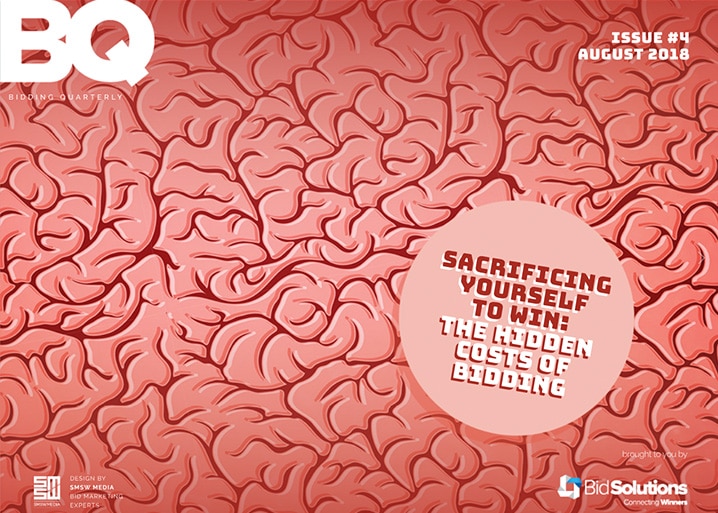Bidding by its nature can feel intense for those co-opted to the bid team. We must see bid leadership as an activity that safeguards people. Peter McPartland, Bids Manager at national law firm Weightmans LLP offers ideas to ensure the experience and wellbeing of all involved remains positive throughout.
It is our duty to ensure we remain aware of the negative impact that certain situations associated with bidding can have on our colleague’s wellbeing – and mitigate that negative impact.
Building trust
Social awareness is essential to engineer the genuine trust needed to support people we bring in to what can be complex and pressurised environments.
This trust not only means they are more likely to be more motivated but it enables you to measure more accurately how best to work with that person to maximise their contribution – and maintain wellbeing.
For example, we are often guilty of taking for granted that our subject matter experts or service delivery team have experience or capacity to perform strongly in the many stages of a bid lifecycle.
Seeking feedback from team members throughout will build trust and highlight areas of concern for them. These can then be addressed through specific and personal support.
Group dynamics
At the formative stages, when you are developing win strategies, exploring different ideas or encouraging imagination, it is easy to forget such events can feel demoralising for some involved.
That is because the best ideas invariably evolve through discussions where people are exposed to what can feel like conflict and rejection.
Bringing diverse groups together, either from different teams, or made up of people at different levels can also generate rivalry.
It is vital that we, as bid coaches, emphasise the importance of creating an environment where people know from the outset that they have the freedom to share opinions, irrespective of their perceived comfort zone or the status of others in attendance.
Being realistic and supportive
It is important to safeguard writers by keeping reviews structured, focussed and filtered. Do not underestimate how demoralising it is to be involved in review meetings which quickly generate into a free for all to criticise rather than enhance the work of others.
The dynamic obviously changes from the ITT response to the pitch interview because thoughts of potential rejection or triumph become very personal.
Throughout the process of preparing people for the big day, we must be mindful of the anxieties that often come with it, for people of all levels.
What one presenter wants the preparation journey to feel like will not necessarily correspond with the thoughts of others. This can be very unsettling.
It is not uncommon for people to have personal preparation preferences, and we need to pay attention to them.
Agile working
Organisations are becoming increasingly dispersed and people’s working weeks/days are being tailored to support individual preferences. It’s important to respect the flexibility and practicalities that underpin the roles of those we bring on to the bid team. Showing a lack of appreciation of these or treating such terms as inconvenient is wrong.
Also be mindful of the dynamics that exist when hosting non-face-to-face meetings. Keep them short and focussed would be my advice to ensure we don’t create time pressures on their other commitments.
Winning over our people
People co-opted to a bid team should look back on their experience of the bid with genuine enthusiasm and confidence.
Please be mindful of the negative impact that working on a bid can have on a persons well-being if not led in a genuinely considerate way.
This article was written by Peter McPartland.

